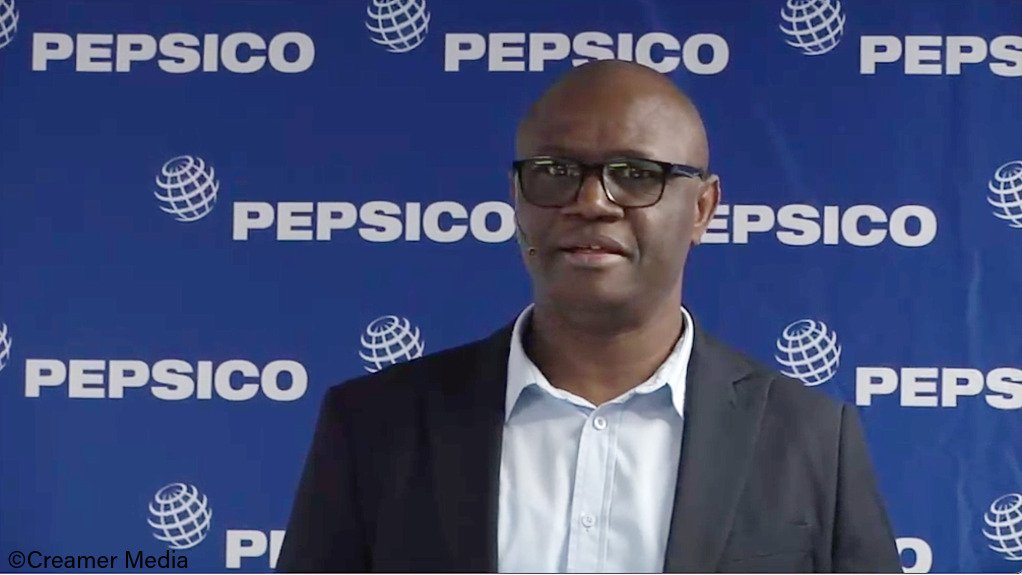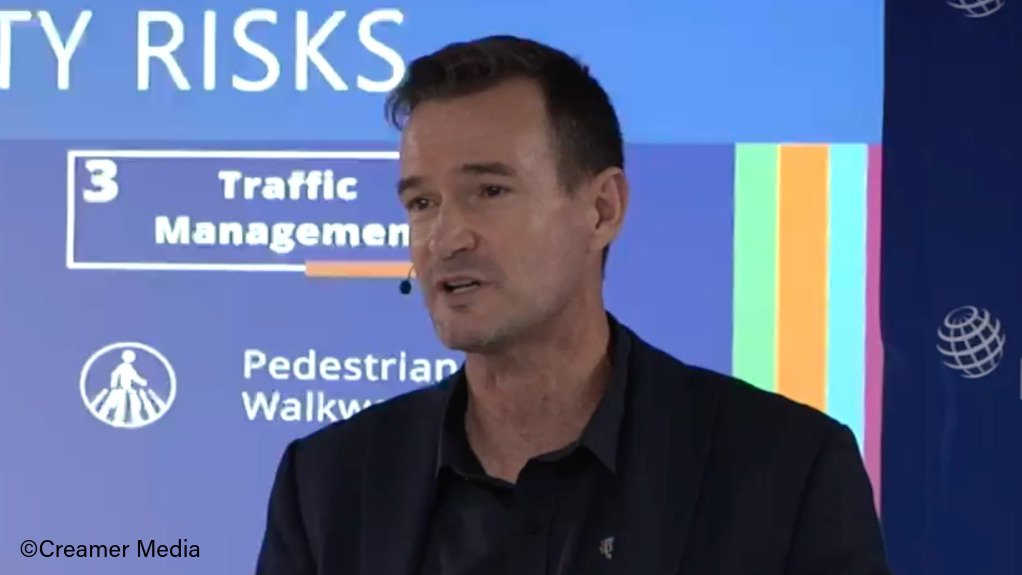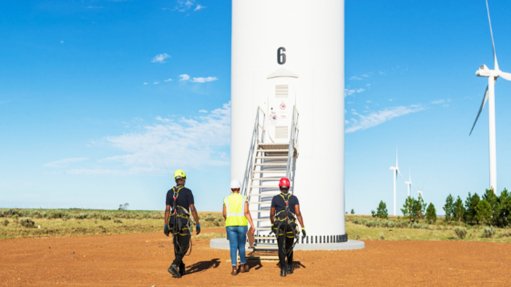PepsiCo enhances sustainability measures at Isando factory



PepsiCo South Africa plant lead Eskins Mabiginye
Photo by Creamer Media
PepsiCo South Africa snacks GM Gareth Haarhoff
Photo by Creamer Media
Food and beverage corporation PepsiCo South Africa has described its Isando facility, in Gauteng, as a “beacon of sustainable innovation”, boasting an on-site anaerobic digestion plant that converts waste into biogas and produces up to 30% of the site's peak energy demand.
This comes after the company launched its new potato chip production line – the PC50 Flex Line – in which it invested R746-million last year.
Plant lead Eskins Mabiginye explained during a media tour on May 6 that the PC50 Flex Line focussed on three aspects, namely the investment itself, the socioeconomic impact, as well as sustainability.
“As we improve the technology, we have to also to make sure we consider those three aspects,” he said.
Aligning with its sustainability goals, the anaerobic digestor, which converts organic materials into combustible biogas, forms part of the PepsiCo Plus initiative and converts about 30 t a day of waste into energy and digestate intended for use as a fertiliser ingredient.
Once PepsiCo South Africa’s implementation of renewable energy solutions is fully ramped up towards end-June 2025, Mabiginye explained that Isando will have an installed capacity of 2.5MW of renewable energy generation, which combines energy produced from the 800 kW anaerobic digestor, as well as on-site solar PV, which combined are sufficient to carry day time peak demand.
At the moment, the company’s installed solar capacity is about 1.7 MW.
Mabiginye explained that, of the R100-million invested into the digestor, R16.8-million is funded through the Critical Infrastructure Programme grant with the Department of Trade, Industry and Competition.
Meanwhile, the company noted that its R746-million investment in the new PC50 Flex line has enabled the Isando facility to increase its potato chip production capacity by 29%, as well as added 103 direct jobs and created over 2 000 indirect opportunities through local small, medium-sized and microenterprises (SMMEs).
PepsiCo described the facility as the “cutting edge” of South Africa’s snacks manufacturing landscape.
As the manufacturing hub for brands such as Lay’s, Simba, NikNaks and Doritos, the company said Isando exemplifies PepsiCo’s commitment to world-class production, environmental stewardship and local economic empowerment.
PepsiCo South Africa snacks GM Gareth Haarhoff described the local snacks industry as resilient, with steady growth in volume and revenue over the last ten years.
“The snacks industry is quite resilient, although we do see price pressures everywhere. But in general, the snacks market in South Africa is a healthy one, and continues to grow. Consumers still continue to look for snack products and buy them.
“We're very proud of the quality and the brands that we have operating in this portfolio,” he said.
The Isando facility also reflects PepsiCo’s broader transformation agenda, with 100% water replenishment achieved in 2023 and 2024 – two years ahead of schedule – and achieving zero waste to landfill since 2022.
PepsiCo said these milestones, alongside improved productivity and quality standards, position Isando as a benchmark for future-fit food manufacturing on the continent.
“For PepsiCo, we need to make sure that we continually support sustainability in the system and that we are not damaging the environment. We are proud to say that we've got zero waste going to landfills,” said Mabiginye.
Article Enquiry
Email Article
Save Article
Feedback
To advertise email advertising@creamermedia.co.za or click here
Comments
Press Office
Announcements
What's On
Subscribe to improve your user experience...
Option 1 (equivalent of R125 a month):
Receive a weekly copy of Creamer Media's Engineering News & Mining Weekly magazine
(print copy for those in South Africa and e-magazine for those outside of South Africa)
Receive daily email newsletters
Access to full search results
Access archive of magazine back copies
Access to Projects in Progress
Access to ONE Research Report of your choice in PDF format
Option 2 (equivalent of R375 a month):
All benefits from Option 1
PLUS
Access to Creamer Media's Research Channel Africa for ALL Research Reports, in PDF format, on various industrial and mining sectors
including Electricity; Water; Energy Transition; Hydrogen; Roads, Rail and Ports; Coal; Gold; Platinum; Battery Metals; etc.
Already a subscriber?
Forgotten your password?
Receive weekly copy of Creamer Media's Engineering News & Mining Weekly magazine (print copy for those in South Africa and e-magazine for those outside of South Africa)
➕
Recieve daily email newsletters
➕
Access to full search results
➕
Access archive of magazine back copies
➕
Access to Projects in Progress
➕
Access to ONE Research Report of your choice in PDF format
RESEARCH CHANNEL AFRICA
R4500 (equivalent of R375 a month)
SUBSCRIBEAll benefits from Option 1
➕
Access to Creamer Media's Research Channel Africa for ALL Research Reports on various industrial and mining sectors, in PDF format, including on:
Electricity
➕
Water
➕
Energy Transition
➕
Hydrogen
➕
Roads, Rail and Ports
➕
Coal
➕
Gold
➕
Platinum
➕
Battery Metals
➕
etc.
Receive all benefits from Option 1 or Option 2 delivered to numerous people at your company
➕
Multiple User names and Passwords for simultaneous log-ins
➕
Intranet integration access to all in your organisation




















